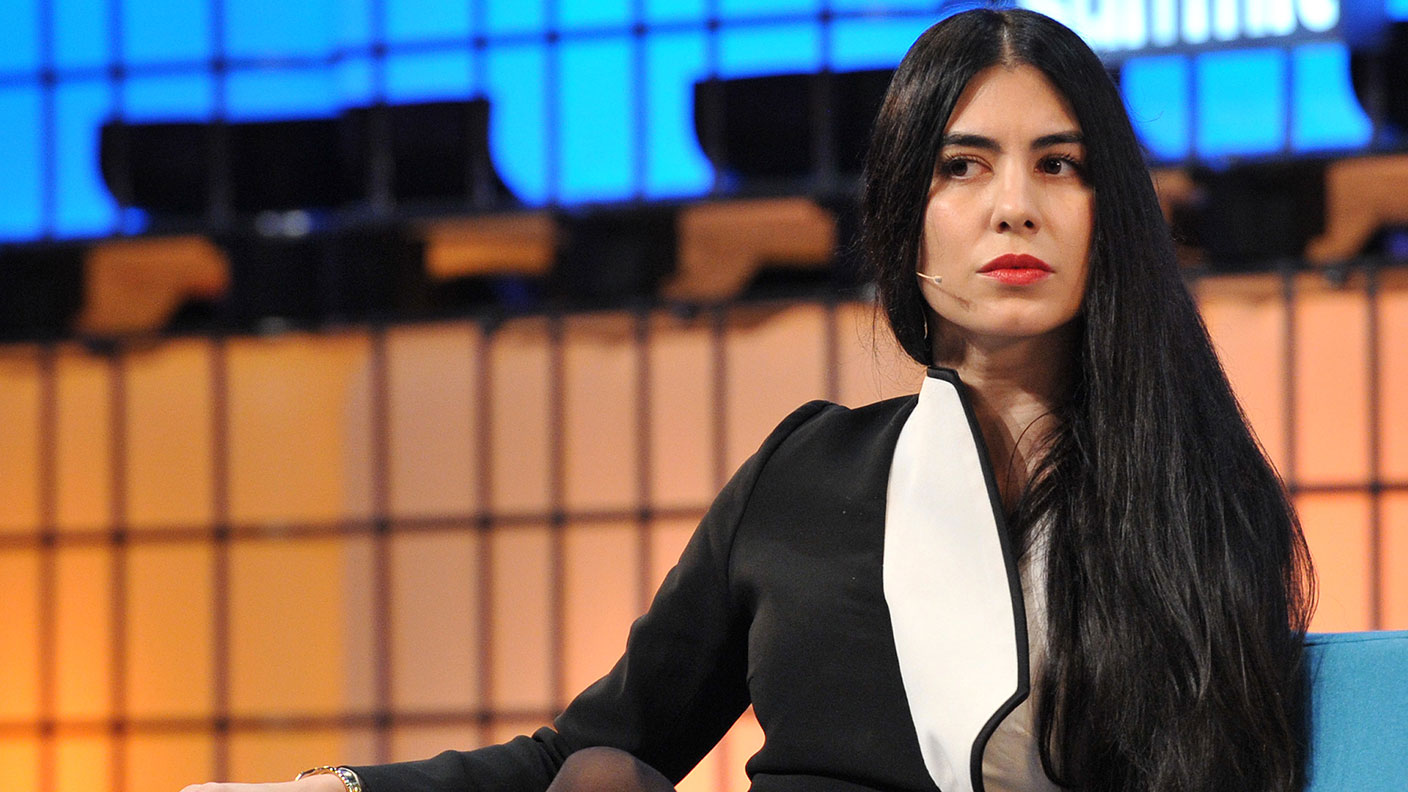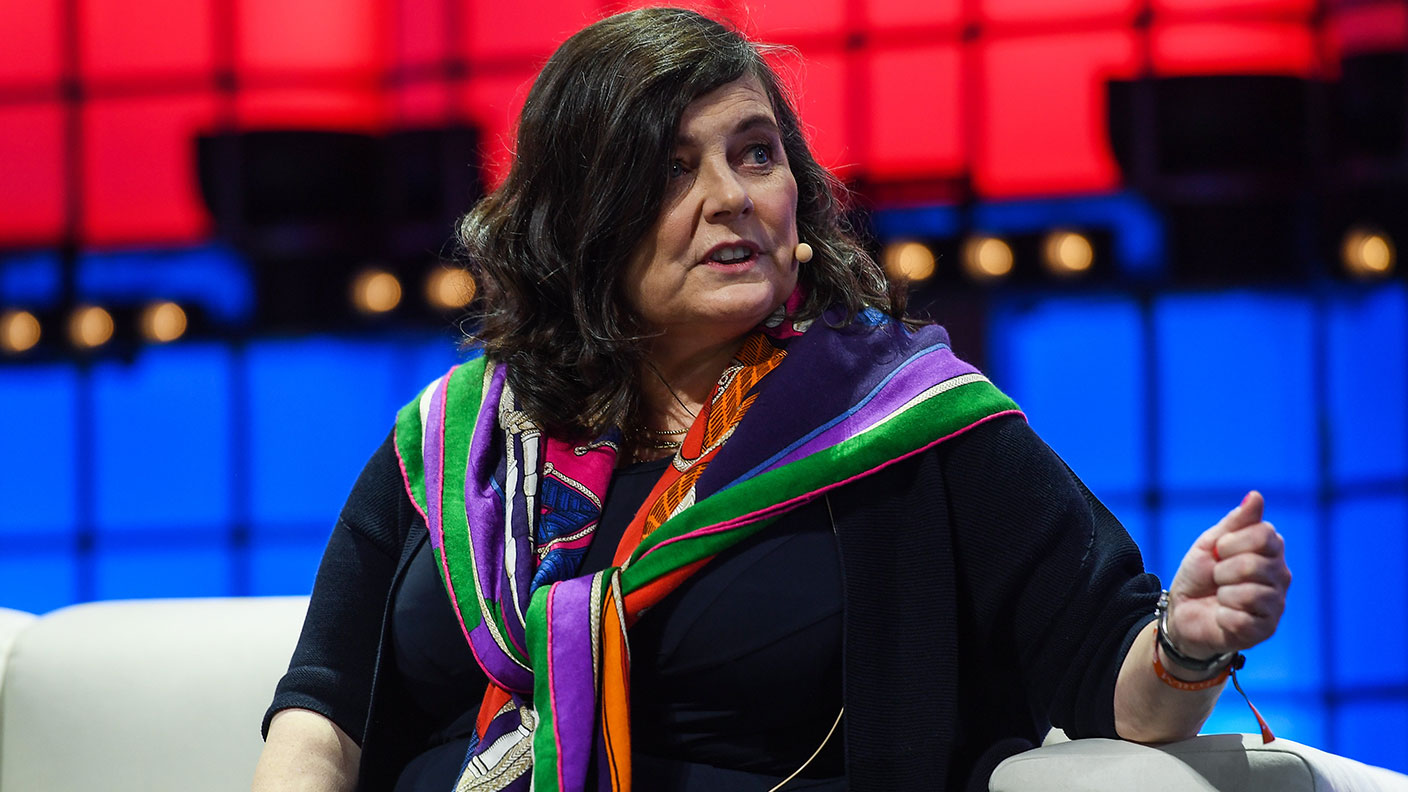Three women CEOs who prove that diversity is the key to success
Tom Saunders looks at how three very different women – Shahrzad Rafati, Trinny Woodall and Anne Boden – have grown successful businesses.

Get the latest financial news, insights and expert analysis from our award-winning MoneyWeek team, to help you understand what really matters when it comes to your finances.
You are now subscribed
Your newsletter sign-up was successful
Want to add more newsletters?

Twice daily
MoneyWeek
Get the latest financial news, insights and expert analysis from our award-winning MoneyWeek team, to help you understand what really matters when it comes to your finances.

Four times a week
Look After My Bills
Sign up to our free money-saving newsletter, filled with the latest news and expert advice to help you find the best tips and deals for managing your bills. Start saving today!
Shahrzad Rafati decided at 13 that she would one day build a global business. As Andreane Williams points out on the BBC, she was born into a family of business leaders in Tehran, but left her native country at 17 to avoid the Iran-Iraq war. She moved by herself to Vancouver to attend the University of British Columbia, having very little English. “I knew that I needed a different future, and a life where I could make a difference, and where equal was equal.”
After she graduated in 2000, Rafati studied French at the Université Paris-Sorbonne, and leadership at Oxford University’s Said Business School. Upon graduating she founded BroadbandTV (BBTV), which she still runs. Initially a hardware company that made set-top boxes that allowed users to watch internet videos on their televisions, Rafati quickly pivoted towards software once she noticed the way Apple’s music-streaming platform, iTunes, was disrupting the music industry. Video, she predicted, would inevitably follow suit.
Within three months she decided to change the focus of the company entirely, creating software that allows firms to profit from advertisements put on content that has been pirated and re-uploaded to a different platform, such as YouTube. It does so by tracking uploaded content, such as the highlights of sports games or clips from films, through audio- and video-recognition technology, and then places advertisements on the pirated videos. The revenue goes to the firms affected, and BBTV takes a percentage.
MoneyWeek
Subscribe to MoneyWeek today and get your first six magazine issues absolutely FREE

Sign up to Money Morning
Don't miss the latest investment and personal finances news, market analysis, plus money-saving tips with our free twice-daily newsletter
Don't miss the latest investment and personal finances news, market analysis, plus money-saving tips with our free twice-daily newsletter
A number of investors sought to pile in on the action, with Canadian tech businessman Hamed Shahbazi purchasing a 51% stake for $36m in 2013. BBTV’s clients include the National Basketball Association, which the firm has worked with from the beginning, Sony, Warner Bros and Disney. BBTV employs more than 400 people in Vancouver, New York, Los Angeles and Mumbai, and is thought to be worth more than $1bn. Rafati, now 40, prides herself on the diversity and equality of her workforce: women make up 43% of employees and 46% of managers – high figures for a technology company. “This is a key factor in the reason why we are so successful at BBTV,” she says.
Trinny Woodall’s bid for world domination

Despite being one half of the hit “say-it-as-it-is fashion sensation” What Not to Wear TV programme that started almost 25 years ago, it wasn’t easy for Trinny Woodall to secure funding for her latest project, says Harry de Quetteville in The Daily Telegraph. It was only after pitching to around 30 venture-capital firms that she finally found a “mainly female-led” team of willing investors and secured funding for Trinny London, her eponymous make-up brand.
The online-only brand is designed to be an alternative to the old-fashioned department-store experience of buying make-up, which can often be quite alienating for middle-aged women — Trinny’s target demographic — who don’t see themselves reflected in the people behind the counters.
“There are a lot of women from 35 to 50, which is our core target market, who are ignored,” she explains. It seems they were desperate to be heard: revenues jumped from £500,000 from 6,000 customers in 2017 when the brand was founded to £26m from 300,000 so far in 2020. Trinny London “exchanged the bafflement of 150 lipsticks” on offer in the stores for clever stackable make-up pots that snap together for easy travelling and a bespoke product-matching service that directs customers to the best shades for them.
The company has attracted attention from major players, with Unilever recently buying a stake in the business, now valued at £46m. Woodall’s share of nearly £22m landed her at number 64 in this year’s Telegraph Hot 100 list of top tech entrepreneurs.
Woodall’s success is down in part to her mastering the art of contemporary selling. She has approaching 800,000 Instagram followers and uses the platform to promote her product and build a fanbase, which has been a critical part of growing the business.
Looking towards future expansion, Woodall, now 56, has launched “Trinny Tribes”, communities of like-minded women who act as unpaid promoters for her brand. Even though the firm started just three years ago, Trinny London ships to 68 countries, and there are now 33 different “tribes” all across the world. Trinny is certain that world domination is “already happening, darling”.
Anne Boden: “Work-life balance? I only have work”

Anne Boden is well aware that she doesn’t exactly look like your average banking mogul, says Anna Moore in The Guardian. As a 50-something woman, Boden embarked on a journey to start what is quite possibly the hardest business to crack: a bank. A challenger, online-only bank at that.
Boden hails from “a very ordinary background” – she grew up in Swansea, her father worked for British Steel and her mother in the local department store. But she “did well in school… and ended up in London working for Lloyds”. Her corporate career peaked with a move to Dublin in 2012 to join Allied Irish Banks as group chief operating officer. It was here she began to picture a new kind of bank, “without the bureaucracy, where opening an account took minutes not weeks”, where cheques could be deposited with just a photo, and card-lock facilities were available 24/7. All that, but without branches.
Boden left her job in 2014 and, “with no office and no business card”, chased meeting after meeting trying to sell her vision. The pressure was “unbelievable”, and she received hundreds of rejections. But after eight months, she managed to persuade a few firms to invest and recruited a small team. Starling Bank was born. Disaster struck when her chief technology officer, Tom Blomfield, left Starling over a disagreement about investment opportunities. He started his own online bank, Monzo. Boden was shocked by the move, but continued working until the end of 2015, when she was “summoned” to the Bahamas to meet billionaire Harald McPike, who invested £48m.
Now, Starling has 1.8 million customers and employs more than 1,000 people, with over 40% of senior roles occupied by women. The bank is on course to become profitable by the end of the year and it was the only challenger bank to grow in 2020. It’s taken a lot of work, as Boden readily acknowledges. “People talk about ‘work-life balance’, I only have work – and I enjoy every minute of it.”
Get the latest financial news, insights and expert analysis from our award-winning MoneyWeek team, to help you understand what really matters when it comes to your finances.
-
 Should you buy an active ETF?
Should you buy an active ETF?ETFs are often mischaracterised as passive products, but they can be a convenient way to add active management to your portfolio
-
 Power up your pension before 5 April – easy ways to save before the tax year end
Power up your pension before 5 April – easy ways to save before the tax year endWith the end of the tax year looming, pension savers currently have a window to review and maximise what’s going into their retirement funds – we look at how
-
 Ayatollah Ali Khamenei: Iran’s underestimated chief cleric
Ayatollah Ali Khamenei: Iran’s underestimated chief clericAyatollah Ali Khamenei is the Iranian regime’s great survivor portraying himself as a humble religious man while presiding over an international business empire
-
 Long live Dollyism! Why Dolly Parton is an example to us all
Long live Dollyism! Why Dolly Parton is an example to us allDolly Parton has a good brain for business and a talent for avoiding politics and navigating the culture wars. We could do worse than follow her example
-
 Michael Moritz: the richest Welshman to walk the Earth
Michael Moritz: the richest Welshman to walk the EarthMichael Moritz started out as a journalist before catching the eye of a Silicon Valley titan. He finds Donald Trump to be “an absurd buffoon”
-
 David Zaslav, Hollywood’s anti-hero dealmaker
David Zaslav, Hollywood’s anti-hero dealmakerWarner Bros’ boss David Zaslav is embroiled in a fight over the future of the studio that he took control of in 2022. There are many plot twists yet to come
-
 The rise and fall of Nicolás Maduro, Venezuela's ruthless dictator
The rise and fall of Nicolás Maduro, Venezuela's ruthless dictatorNicolás Maduro is known for getting what he wants out of any situation. That might be a challenge now
-
 The political economy of Clarkson’s Farm
The political economy of Clarkson’s FarmOpinion Clarkson’s Farm is an amusing TV show that proves to be an insightful portrayal of political and economic life, says Stuart Watkins
-
 The most influential people of 2025
The most influential people of 2025Here are the most influential people of 2025, from New York's mayor-elect Zohran Mamdani to Japan’s Iron Lady Sanae Takaichi
-
 Luana Lopes Lara: The ballerina who made a billion from prediction markets
Luana Lopes Lara: The ballerina who made a billion from prediction marketsLuana Lopes Lara trained at the Bolshoi, but hung up her ballet shoes when she had the idea of setting up a business in the prediction markets. That paid off